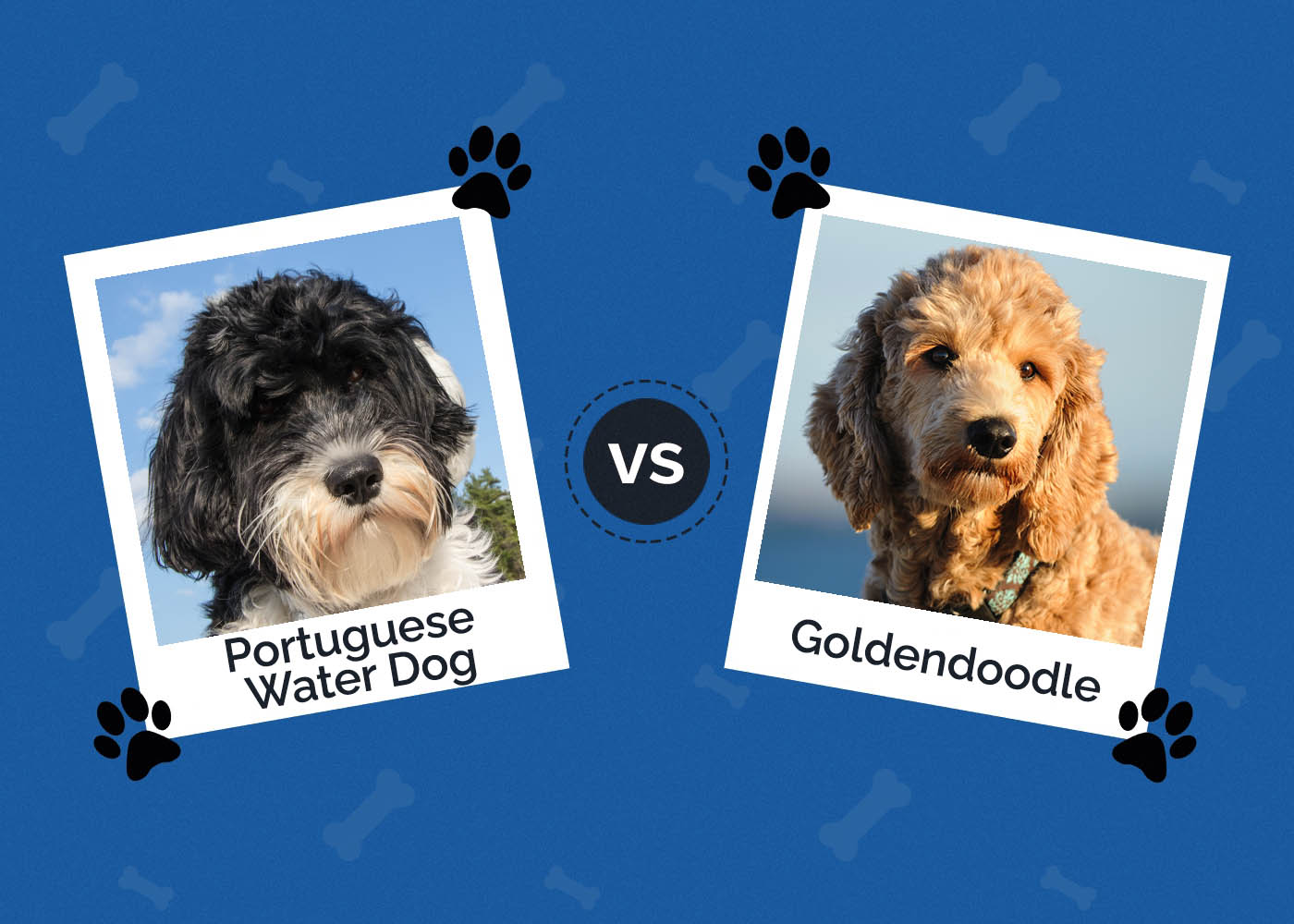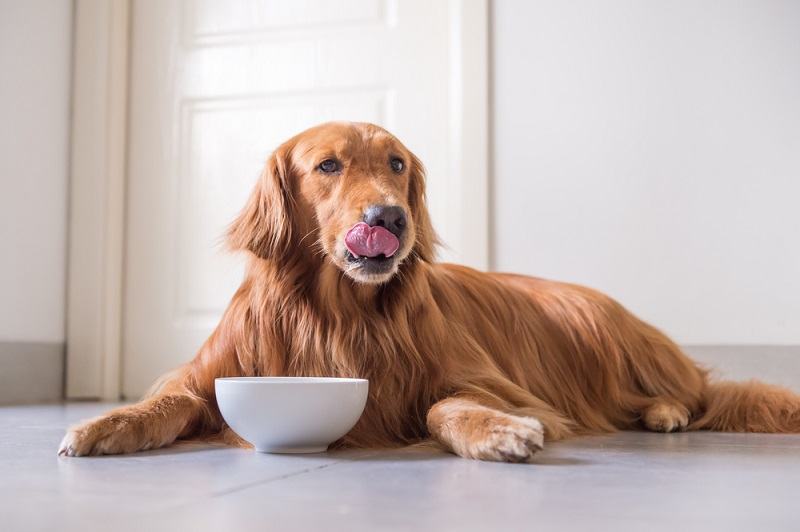Can Dogs Eat Anise Seed? Vet Approved Health Review
Updated on
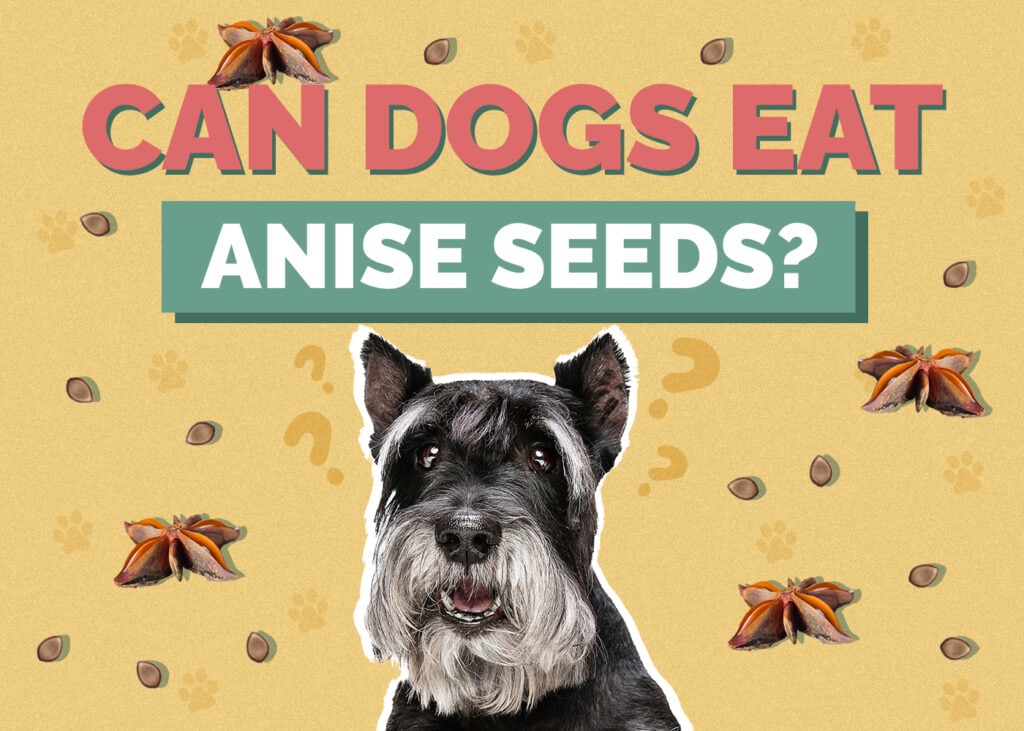
Click to Skip Ahead
As dog lovers, we must exercise our due diligence and understand which foods are safe and which are unsafe for our beloved pups. If you use anise seed in your kitchen, you can rest assured this spice is safe for dogs to eat in small amounts. In fact, anise is popularly known as being the closest thing to catnip for dogs.
Of course, there can always be too much of a good thing, so only small amounts of anise seed in moderation should be offered if you choose to do so. There’s no harm in never offering anise to your dog, but if it’s something you are interested in, keep reading to learn more about it and why it has the reputation it does.
What Is Anise Seed?
Anise seed comes from the seeds from the small white fruit of the anise plant (Pimpinella anisum), which is a flowering annual plant native to the eastern Mediterranean and Southwest Asia. It grows up to 3 feet tall and produces flowers in addition to the fruit.
The plant is related to dill, fennel, cumin, and caraway and is used in a variety of dishes with its light, licorice-like flavor. Anise is not to be confused with star anise, which is a fruit belonging to the magnolia family that has a similar taste and smell but is much more potent. Anise seed can be used whole, ground, or as an essential oil.
In addition to being a tasty additive to food or beverages, anise seed is rich in nutrients and is often touted for its health benefits and is used as a natural remedy for certain health ailments in the human world.1
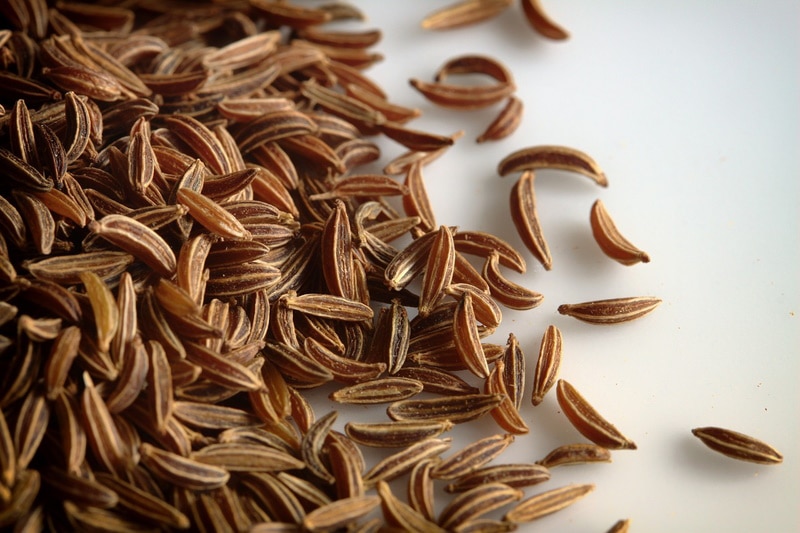
Anise Seed – Like Catnip for Dogs?
Anise seed has a very strong, distinct smell that is very easily detected by our dog’s incredible sense of smell. It has been observed to have a stimulating effect on our canine friends by promoting excitedness, playfulness and increasing hyperactive behavior, similarly to how catnip can affect some cats.
Anise seed is even used in canine scent training along with many other potent natural scents. The strong smells of specific plants are unique to each type, allowing dogs to easily tell the difference and trainers to use this to teach the dogs how to follow certain scents.
Though anise seed is often referred to as the “catnip for dogs,” the catnip plant and the anise plant are not related. While anise does seem to be very stimulating for dogs, the reaction to it varies by individual. The effects have been observed lasting hours in some, while only resulting in a short burst of energy in others. Some dogs have even shown very little interest and have even been deterred by the scent.
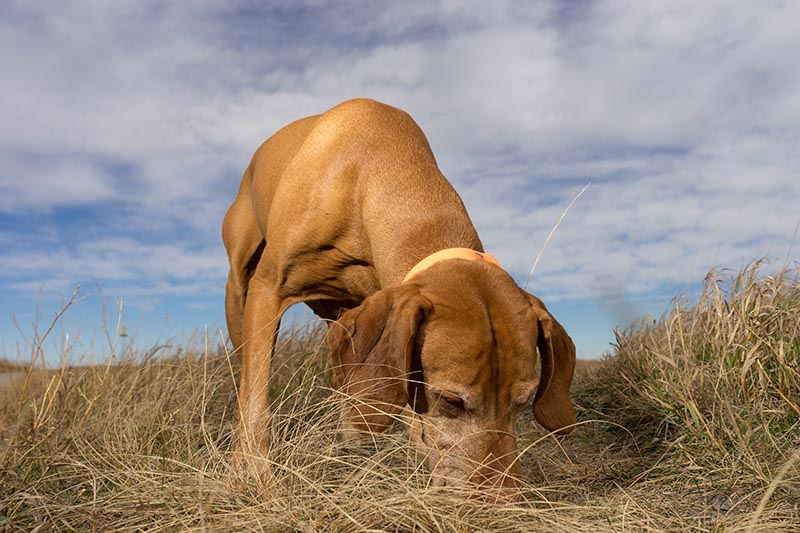
How to Use Anise Seed for My Dog?
Before you introduce a new food or supplement to your dog, you should first discuss it with your veterinarian. Anise should only be used in moderation for dogs, and only very small amounts are necessary for the effects.
Owners should prepare for an increase in energy after offering anise seed and be ready to engage in physical activity to help them burn it off. It is never recommended that you give anise seed to your dog before bedtime or if you need them to be calm for any reason.
Whole or Ground Anise Seed
Ground or whole aniseed are both easily used for dogs. Many owners choose to crush the whole seeds to help release the aroma. You can add a small pinch or two of ground anise seed or no more than a few seeds. It can be added into dog treats, or sprinkled on their food, a toy, or their bedding to get the effect of the aroma.
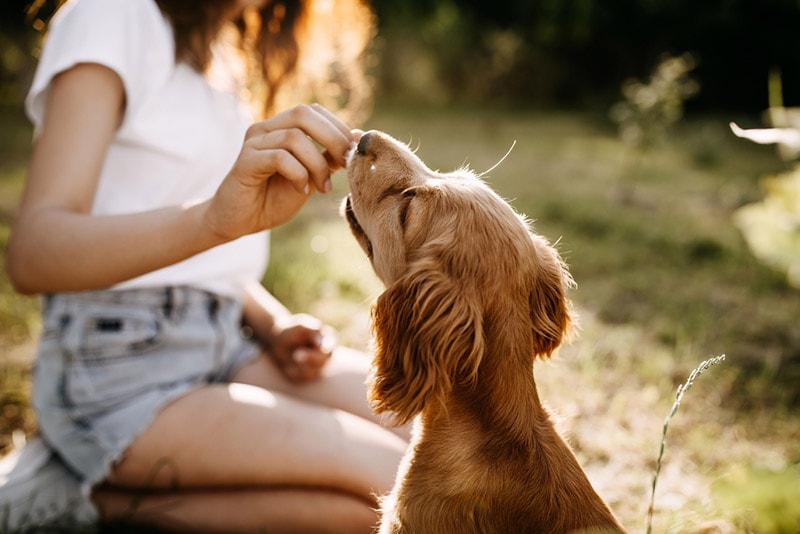
Anise Seed Essential Oil
Anise seed does come in the form of an essential oil, but since essential oils are highly concentrated, they should never be ingested or put on the skin or fur. You can dilute it with water and dab it on inanimate objects your dog uses to enhance the scent, but due to the potential risks essential oil is usually best avoided.
You should always exercise caution with essential oils when you have pets, as they can be incredibly dangerous. Even essential oils from non-toxic plant varieties can result in side effects, so always talk to your veterinarian before use and if your dog exhibits any unusual clinical signs, stop use immediately and contact your vet.
As An Herbal Remedy
This herb is said to have some health benefits for both humans and dogs and is sometimes used as an herbal remedy for certain health ailments. It has been reportedly used to help with digestive issues and to treat respiratory problems, but it’s important to never use an herbal remedy for your dog unless under the supervision of your veterinarian.

Potential Side Effects
There is certainly such a thing as too much anise seed. Larger amounts can easily lead to gastrointestinal upset such as nausea, diarrhea, and vomiting. Too much can also cause a low heart rate and even unconsciousness, so it is important to be cautious. Starting off with the very smallest amount possible is recommended so that you can see how it is tolerated by your dog.
Never offer more than what’s recommended and do not hesitate to contact your veterinarian if your dog has any negative side effects or if you have any concerns at all.
Conclusion
Anise seed is safe for dogs to eat in very small amounts, as too much can cause unwanted side effects and some can be serious. It is sometimes referred to as “catnip for dogs” thanks to the stimulating effect the intense aroma can have on their energy levels. Anise has also been used as an herbal remedy for certain health issues, but you should always discuss any new foods, herbs, or supplements with your veterinarian before offering them to your dog.
Featured Image Credit: gokalpiscan, Pixabay



